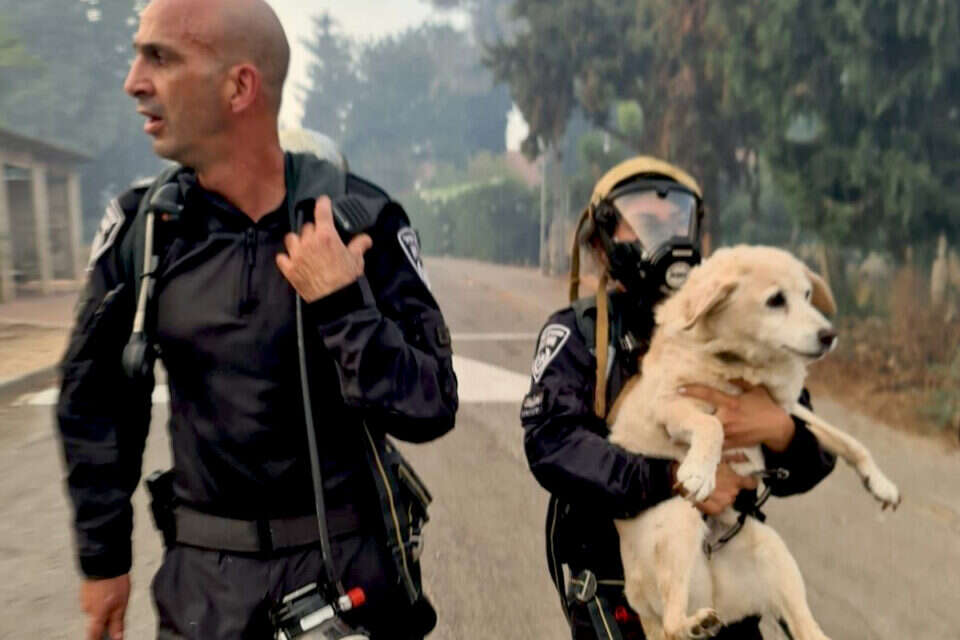The carbon dioxide still tightly embraces the hemoglobin in the blood of the inhabitants of the Jerusalem mountains, following the fierce fire in the surrounding forests.
Burnt houses and scorched forests - these were the sights that were seen in front of the rescue and relief crews, who are working hard to save the entire chain of flora and fauna in the area.
And as with any self-respecting event in recent years, the virtual collaboration in the various groups has raged and erupted, making accessible and horrific images from the event accessible.
Everything is sent quickly and at the touch of a button, and everyone will filter out the level of sensitivity required for them.
It is indeed heartbreaking to see the green lungs of our country rising in the flames of heaven.
From where I lived, the play looked like an apocalyptic nuclear test.
Pictures of the winery burning on its bottles, and the quality wine reservoirs in it - burned the heart, knowing that many families had lost their livelihood and source of livelihood, at a time when it was not easy anyway.
Concern for human life gnaws at our hearts all the time, while one picture, worth a thousand words, warmed our hearts.
In the same picture, firefighters are seen holding a graceful dog in their hands, which was sentenced to a fire on the outskirts of the village of Kislon.
Even for that they found time and attention - real warriors.
However, it turns out that despite the investment and dedication, the dog did not live long - as she was found the next morning scorched at the entrance to the moshav.
Knowing this raised a fundamental question.
Should firefighters also deal with rescuing animals during a fire?
Did they have to do anything to save the bitch, and only then turn to continuing the life-saving work they were engaged in?
Judaism considers the prevention of animal cruelty a supreme value, and according to a large part of the opinions it is a commandment that the Torah itself commands.
However, on issues of saving people, animals and plants - there are steps in the order of precedence:
From the verse "And let your brother live with you", Rabbi Akiva learned - the condition that taught us about the great rule in the Torah, of "and love your neighbor as yourself".
Thus, it is also ruled that the concern for the lives of others is after you have taken care of your own life, and in the words of Chazal: "Your life precedes the life of your friend."
The circle expands to the lives of those around you and those close to you: "The poor of your home precede."
You can then turn to the "poor of your city", who precede the poor of another city - and so on.
Saving animals and plants is very important, but they can not come at the expense of risking human life, and unfortunately the decisions are sometimes difficult.
The activity of firefighters under complex conditions requires them to make value and ethical decisions.
The decision is often mixed with an understanding of the situation on the ground, an analysis of the event from a broad perspective, and from an understanding of reality.
Their decision seems to be a considered and worthy decision.
And as Yaakov Rotblit wrote in his poem, engraved in Israeli discourse: "Things seen from there are not seen from here."

